How to Use Manure in Your Garden the Eco-Friendly Way?
Gardening is not just about planting seeds and waiting for them to grow; it’s about creating a thriving ecosystem that nurtures both plants and soil. One of the best-kept secrets of successful gardeners is the use of manure. This natural resource is packed with nutrients and can transform your garden into a lush paradise. But how do you use it effectively and eco-friendly? Let’s dive into the world of manure and discover how it can enhance your gardening practices.
Before you start shoveling manure into your garden, it’s crucial to understand the different types available. Each type of manure—be it from cows, chickens, or horses—comes with its own unique nutrient profile. For instance, cow manure is rich in nitrogen, while chicken manure boasts a higher concentration of phosphorus and potassium. Knowing these differences helps you choose the right type for your specific soil needs and plant requirements. Here’s a quick overview:
| Type of Manure | Nutrient Profile | Best For |
|---|---|---|
| Cow Manure | High in nitrogen | Vegetables, grains |
| Chicken Manure | High in nitrogen, phosphorus, potassium | Flowering plants, fruiting crops |
| Horse Manure | Moderate nitrogen, high organic matter | Composting, soil amendment |
So, why should you consider using manure in your garden? The benefits are numerous and impactful. First and foremost, manure enriches your soil with essential nutrients, improving its overall health. It acts as a natural fertilizer, providing vital nutrients that plants need to thrive. Additionally, manure enhances soil structure, which is critical for moisture retention. Healthy soil retains water better, reducing the need for frequent watering. Imagine your garden soaking up the rain like a sponge, keeping your plants hydrated and happy!
Manure is a powerhouse when it comes to boosting soil fertility. It contributes to nutrient cycling, which is the process of nutrients moving through the soil ecosystem. When you incorporate manure into your garden, you’re not just adding nutrients; you’re creating a dynamic environment where plants can absorb what they need to grow strong and healthy. Think of it as giving your plants a multivitamin that helps them flourish!
One of the lesser-known benefits of using manure is its ability to foster a diverse microbial community within the soil. These tiny organisms play a crucial role in decomposition and nutrient availability. By applying manure, you’re essentially inviting a whole host of beneficial microbes to your garden party! This microbial activity is vital for sustainable gardening, as it helps break down organic matter and makes nutrients more accessible to plants.
Another fantastic benefit of using manure is its ability to help prevent soil erosion. When you add manure to your garden, it binds soil particles together, creating a more stable structure. This is especially important in areas prone to heavy rains or wind. Picture your garden as a fortress, standing strong against the elements, thanks to the protective qualities of manure. A well-structured soil not only supports plant growth but also protects against environmental degradation.
Now that you’re convinced of the benefits, how do you apply manure effectively? Proper application methods are essential to ensure that you use manure without harming your plants or the environment. Here are some popular techniques:
- Top Dressing: Spread a layer of manure on the soil surface around your plants.
- Tilling: Mix manure into the soil before planting.
- Side Dressing: Apply manure alongside growing plants during the growing season.
Composting manure before application can significantly enhance its benefits while reducing potential pathogens. The composting process allows for the breakdown of organic matter, resulting in a nutrient-rich product that can be safely applied to your garden. Not only does composting improve the quality of manure, but it also helps in creating a more balanced nutrient profile.
Understanding the differences between hot and cold composting methods can help you choose the best approach for your manure. Hot composting involves maintaining high temperatures to break down organic material quickly, while cold composting is a slower process that allows for more gradual decomposition. Each method has its pros and cons, so consider your gardening needs and timeline when deciding which method to use.
If you’re looking for a nutrient-rich liquid fertilizer, compost tea made from manure is an excellent option. It’s easy to make and can be applied directly to your plants for a quick nutrient boost. Just steep some composted manure in water for a few days, strain it, and voila! You have a powerful elixir to nourish your garden.
Q: Is manure safe for all plants?
A: While most plants benefit from manure, it's essential to know the specific needs of your plants and choose the right type of manure accordingly.
Q: How much manure should I apply?
A: It depends on the type of manure and the specific needs of your garden. Generally, a few inches of well-composted manure is sufficient.
Q: Can I use fresh manure directly in my garden?
A: It's best to compost manure before applying it to avoid potential pathogens and nutrient imbalances.
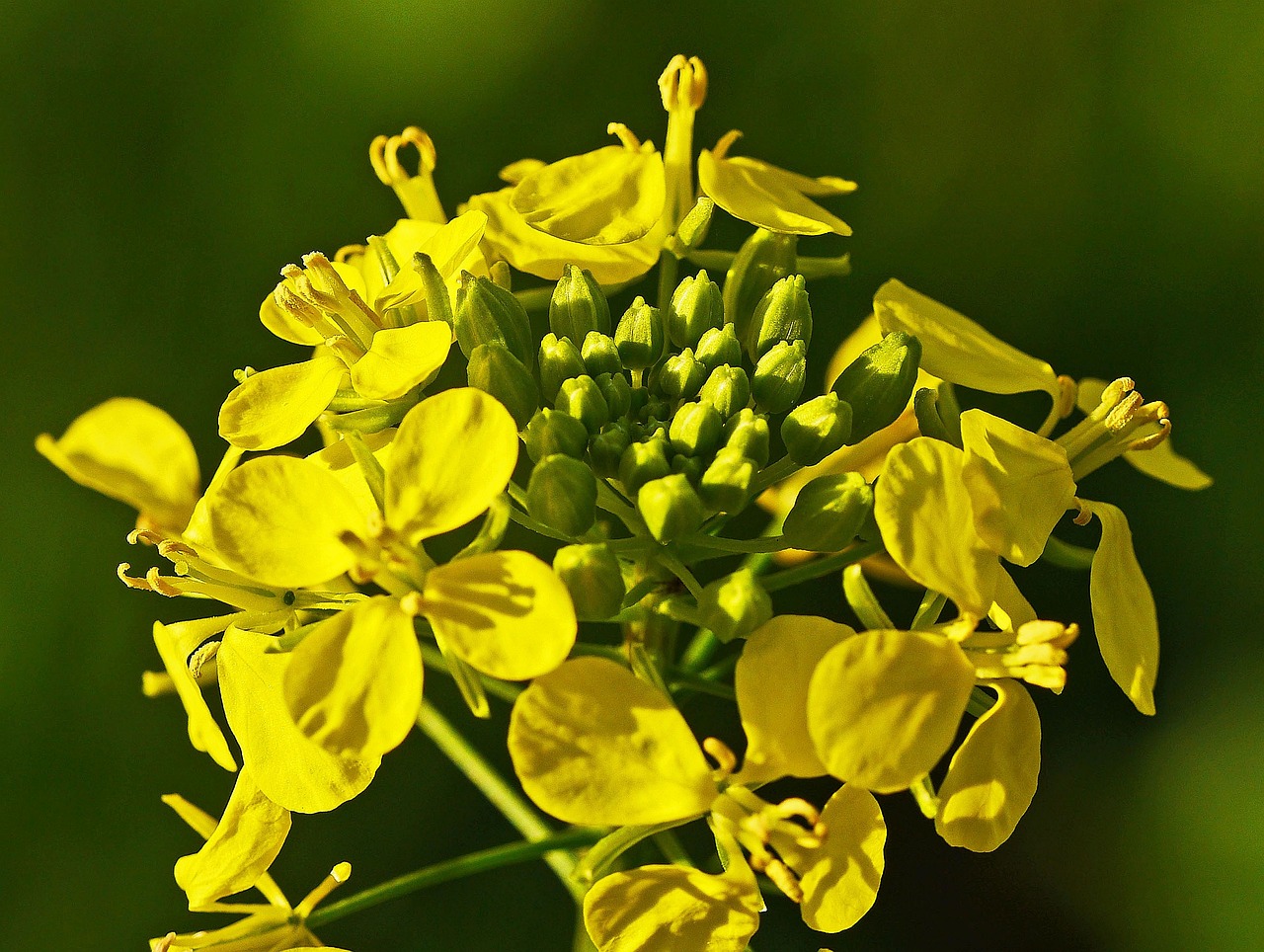
Understanding Manure Types
When it comes to gardening, manure is often hailed as a gardener's best friend, but not all manure is created equal. Different types of manure, such as cow, chicken, and horse, come with their own unique nutrient profiles that can significantly impact your garden's health. Understanding these differences is crucial for gardeners who want to make informed decisions about which type of manure to use for their specific soil needs and plant requirements.
Let's break it down a bit. Cow manure, for instance, is rich in organic matter and is relatively low in nitrogen compared to other types. It's great for adding bulk to the soil and improving its structure. On the other hand, chicken manure is like the powerhouse of the manure world. It contains a high concentration of nutrients, particularly nitrogen, which makes it an excellent choice for boosting plant growth. However, because of its potency, it must be composted or aged before application to prevent burning your plants. Horse manure, while also beneficial, tends to be more fibrous and may take longer to decompose, but it offers a steady release of nutrients over time.
Here's a quick comparison of the three types of manure:
| Type of Manure | Nutrient Content | Best For |
|---|---|---|
| Cow Manure | Low Nitrogen, High Organic Matter | Soil structure improvement |
| Chicken Manure | High Nitrogen | Rapid growth, composting |
| Horse Manure | Moderate Nutrients, High Fiber | Slow-release fertilization |
In addition to these common types, there are also other manures like sheep, goat, and rabbit manure, each bringing its own set of benefits to the table. For example, rabbit manure is often considered a “cold” manure, meaning it can be applied directly to the garden without composting. This makes it a favorite for those looking to quickly enrich their soil without the waiting period associated with other types. Understanding the specific characteristics of each type of manure allows gardeners to tailor their soil amendments to meet the needs of their plants effectively.
So, how do you decide which manure is best for your garden? It often boils down to your specific soil conditions and the types of plants you’re growing. Conducting a soil test can provide valuable insights into what nutrients your soil may be lacking. Once you know what your soil needs, you can select the appropriate manure type to complement those deficiencies, ultimately leading to healthier plants and a more productive garden.
In summary, being knowledgeable about the different types of manure and their respective benefits can transform your gardening experience. By choosing the right manure, you're not just feeding your plants; you're also nurturing the soil ecosystem that sustains them.
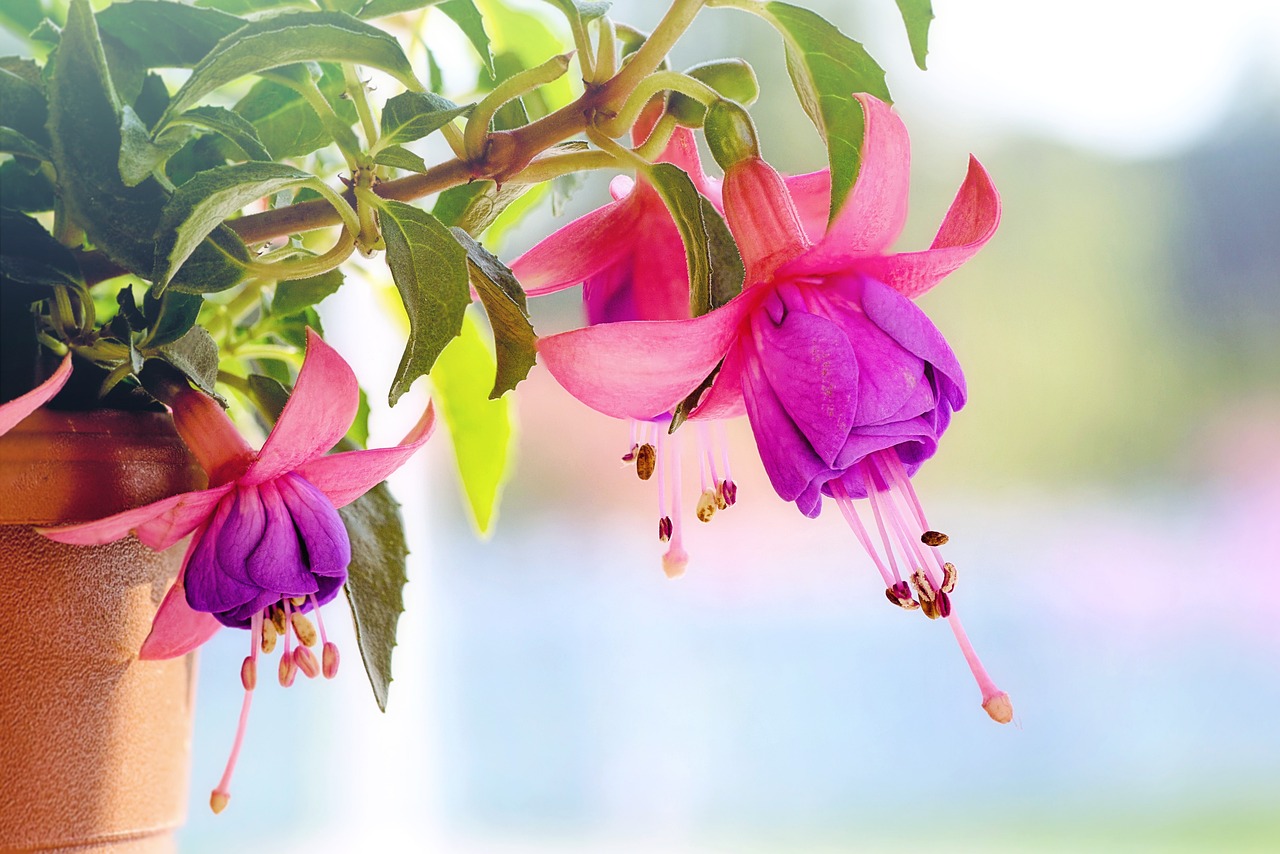
Benefits of Using Manure
When it comes to gardening, many enthusiasts are on the lookout for that *secret ingredient* that can elevate their plants from ordinary to extraordinary. Enter manure—nature’s very own powerhouse of nutrients. Using manure in your garden isn’t just a practice rooted in tradition; it’s a smart, eco-friendly choice that offers a multitude of benefits. So, why should you consider incorporating manure into your gardening routine? Let’s dive into the compelling reasons.
First off, one of the most significant benefits of using manure is its ability to enrich soil fertility. Manure is packed with essential nutrients such as nitrogen, phosphorus, and potassium, which are critical for plant growth. Unlike synthetic fertilizers that can lead to nutrient runoff and soil depletion over time, manure provides a slow-release source of nutrients. This means your plants can absorb them gradually, leading to healthier growth and vibrant blooms. Imagine your garden as a buffet; manure serves up a well-balanced meal that keeps your plants coming back for more!
Moreover, manure enhances soil structure, which is vital for maintaining a healthy garden ecosystem. The organic matter in manure helps improve soil aeration and drainage, allowing roots to breathe and absorb water more efficiently. In a way, it’s like giving your soil a makeover—transforming it from compacted and lifeless to fluffy and nutrient-rich. This improved structure not only supports root development but also promotes better water retention, meaning your plants will be less thirsty and more resilient during dry spells.
Another critical advantage of using manure is its role in enhancing microbial activity. Healthy soil is teeming with microorganisms, and manure acts as a feast for these tiny helpers. When you apply manure, you’re essentially inviting a diverse community of bacteria, fungi, and other organisms to thrive in your garden. These microbes play a crucial role in breaking down organic matter, cycling nutrients, and improving soil health. Think of them as your garden’s little workers, tirelessly ensuring that everything runs smoothly beneath the surface.
Additionally, using manure can significantly help in preventing soil erosion. The organic matter in manure helps bind soil particles together, creating a more stable structure that resists erosion from wind and water. This is particularly important in areas prone to heavy rainfall or strong winds, where unprotected soil can easily wash away. By incorporating manure into your gardening practices, you’re not just protecting your plants; you’re also contributing to the health of the environment by reducing the risk of soil degradation.
To sum it up, the benefits of using manure in your garden are numerous and impactful. From boosting soil fertility and enhancing microbial activity to improving soil structure and preventing erosion, manure serves as a versatile and sustainable option for gardeners looking to cultivate thriving plants. So, the next time you’re in the garden center, consider reaching for that bag of manure instead of synthetic fertilizers. Your plants—and the planet—will thank you!
- Is all manure the same? No, different types of manure (like cow, chicken, and horse) have varying nutrient profiles. It's important to choose the right one for your garden's needs.
- Can I use fresh manure directly on my plants? It's generally recommended to compost manure first to reduce pathogens and make nutrients more available.
- How often should I apply manure to my garden? This depends on your soil's nutrient levels and the types of plants you're growing. A good rule of thumb is to apply it once or twice a year.
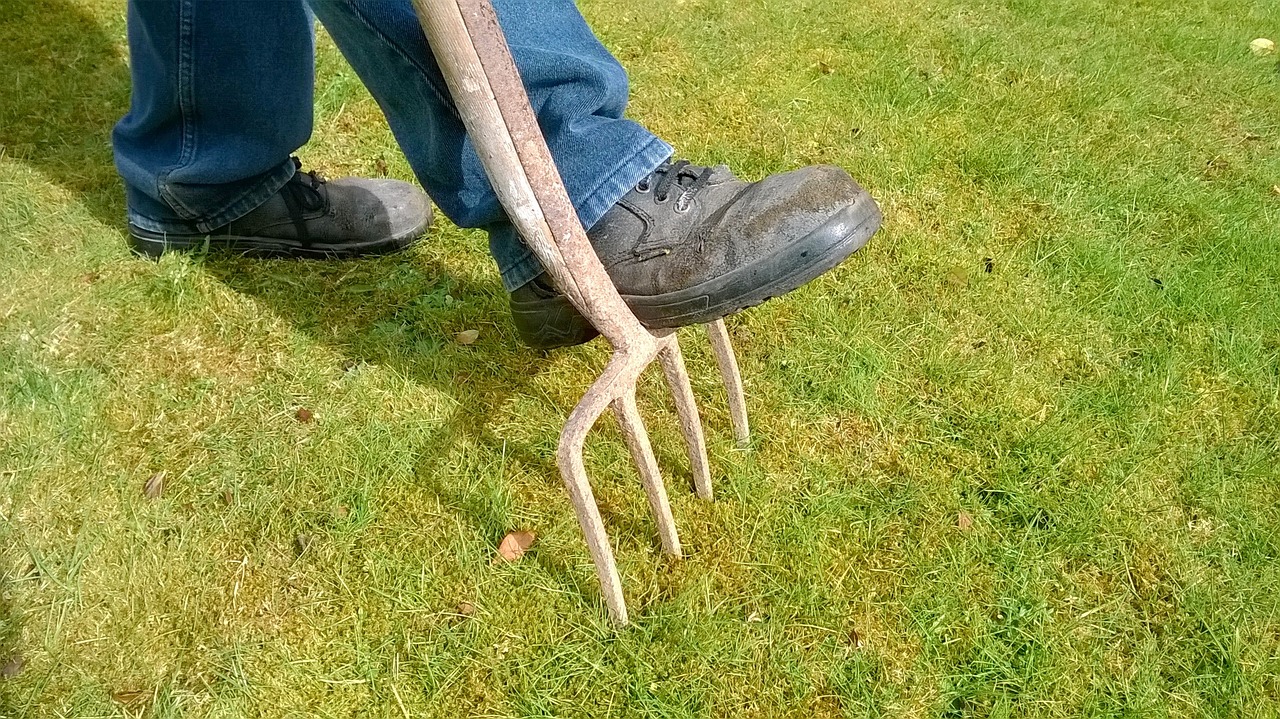
Improving Soil Fertility
When it comes to gardening, soil fertility is the lifeblood of your plants. Think of it as the foundation of a house; without a strong base, everything else is at risk. Manure serves as a natural fertilizer that significantly boosts soil fertility by providing a rich array of vital nutrients. But what exactly does this mean for your garden? Well, let’s break it down!
Manure is rich in essential nutrients such as nitrogen, phosphorus, and potassium—often referred to as the "big three" in gardening. These elements are crucial for plant growth and development. For instance:
- Nitrogen is essential for leaf growth and overall plant vigor.
- Phosphorus supports root development and flowering.
- Potassium helps in disease resistance and overall plant health.
By incorporating manure into your soil, you're not just adding these nutrients; you're also promoting nutrient cycling. This means that the nutrients from the manure are broken down and made available to plants over time, ensuring a steady supply. It's akin to having a slow-release fertilizer that continues to work for you long after application.
Additionally, manure enhances the soil's organic matter content. This organic matter plays a crucial role in improving soil structure, which in turn facilitates better water retention and aeration. Imagine your soil as a sponge; the more organic matter it contains, the more water it can hold, making it less likely to dry out during hot spells. This improved moisture retention is particularly beneficial in times of drought, allowing your plants to thrive even when conditions are less than ideal.
Moreover, the incorporation of manure into your soil fosters a vibrant community of microorganisms. These tiny allies are essential for breaking down organic materials, making nutrients available to plants, and contributing to overall soil health. The presence of diverse microbial life can lead to a more resilient garden ecosystem, where plants can better withstand pests and diseases.
So, when you think about the benefits of using manure, remember that it’s not just about adding nutrients. It’s about creating a thriving environment for your plants to grow and flourish. By improving soil fertility through the use of manure, you’re setting the stage for a bountiful garden that can withstand the test of time and nature.
Q: How often should I apply manure to my garden?
A: It depends on your soil's needs and the type of manure used. Generally, applying manure once or twice a year, preferably in the fall or spring, is beneficial.
Q: Can I use fresh manure directly in my garden?
A: It's best to compost manure first to reduce pathogens and odor. Fresh manure can be too strong for plants and may harm them.
Q: Is there a risk of over-fertilizing with manure?
A: Yes, over-fertilization can lead to nutrient runoff and harm plants. Always test your soil and follow recommended application rates.
Q: What types of manure are best for vegetable gardens?
A: Well-composted cow, chicken, and horse manure are excellent choices for vegetable gardens, as they provide a balanced nutrient profile.

Enhancing Microbial Activity
When it comes to gardening, the health of your soil is paramount, and one of the key players in maintaining that health is the microbial community. Microorganisms such as bacteria, fungi, and protozoa are essential for breaking down organic matter, including manure, and making nutrients available to plants. Think of these tiny organisms as the unsung heroes of your garden, tirelessly working beneath the surface to create a vibrant ecosystem that supports plant life.
Applying manure to your garden significantly enhances microbial activity. When manure is added to the soil, it provides a rich source of organic matter that serves as food for these microorganisms. This influx of nutrients stimulates their growth, leading to an explosion of microbial life. As these microorganisms thrive, they help decompose organic materials, releasing vital nutrients like nitrogen, phosphorus, and potassium into the soil. This process not only nourishes your plants but also contributes to the overall health of the soil.
Moreover, a diverse microbial community can improve soil structure. Microbes produce substances that help bind soil particles together, creating aggregates that improve aeration and water infiltration. This is crucial for plant roots, which need both oxygen and water to thrive. Healthy soil teeming with microorganisms is like a bustling city, where everything works together to create a thriving environment for life.
To maximize the benefits of enhanced microbial activity, consider the following:
- Balanced Manure Application: Avoid over-application, as excess nutrients can lead to imbalances and potential harm to your plants.
- Incorporate Diverse Organic Materials: Mixing different types of organic matter, like leaves or grass clippings, with manure can create a more diverse habitat for microorganisms.
- Maintain Moisture Levels: Microbes thrive in moist environments, so ensuring your soil has adequate moisture is essential for their activity.
In essence, enhancing microbial activity through the use of manure is a win-win situation for your garden. Not only does it improve nutrient availability and soil structure, but it also promotes a healthy ecosystem that can fend off pests and diseases. By nurturing this microbial community, you're investing in the long-term health and productivity of your garden, making it a sustainable paradise for your plants.
1. What types of manure are best for enhancing microbial activity?
Any well-aged or composted manure, such as cow, chicken, or horse manure, can be beneficial. Each type has its unique nutrient profile, so consider your garden's specific needs.
2. How often should I apply manure to my garden?
It's generally recommended to apply manure once a year, ideally in the fall or early spring, to allow it to break down and integrate into the soil before planting.
3. Can too much manure harm microbial activity?
Yes, over-application of manure can lead to nutrient imbalances and may harm the very microbial community you're trying to enhance. It's essential to follow recommended application rates.
4. How can I tell if my soil has a healthy microbial community?
Healthy soil often has a rich, dark color and a crumbly texture. You can also look for signs of life, such as earthworms and other beneficial insects.
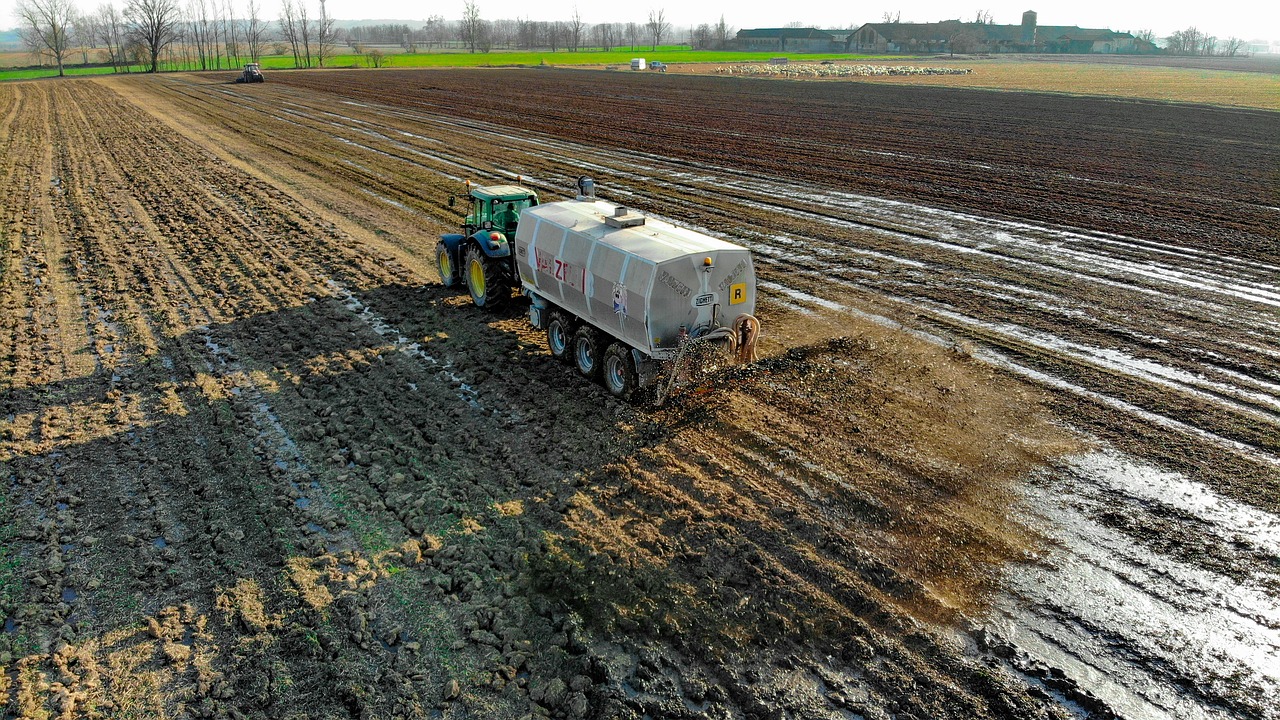
Preventing Soil Erosion
Soil erosion is a significant concern for gardeners and farmers alike, as it can lead to the loss of fertile topsoil, reduced crop yields, and increased environmental degradation. One of the most effective ways to combat this issue is by incorporating manure into your gardening practices. By using manure, you can help bind soil particles together, creating a more stable structure that is less susceptible to erosion. Think of it as a natural glue that holds the soil in place, preventing it from washing away during heavy rains or blowing away in strong winds.
When manure is applied to the soil, it enhances its overall structure, improving its ability to retain moisture and nutrients. This is particularly important in areas prone to erosion, where the soil may become loose and easily displaced. The organic matter in manure improves soil aggregation, which means that soil particles clump together more effectively. This clumping action creates larger pores in the soil, allowing for better water infiltration and reducing surface runoff, which is a major contributor to erosion.
Moreover, the presence of organic matter from manure not only helps in binding the soil but also promotes a healthy ecosystem within the soil. A vibrant community of microorganisms thrives in manure-enriched soil, which further aids in the formation of soil aggregates. These microorganisms break down organic materials and release essential nutrients, ensuring that your plants have everything they need to grow strong and healthy. By fostering a rich microbial environment, you create a sustainable system that protects against erosion while also enhancing plant growth.
To illustrate the impact of manure on soil erosion, consider the following table:
| Factor | With Manure | Without Manure |
|---|---|---|
| Soil Structure | Improved aggregation, better moisture retention | Loose, prone to erosion |
| Nutrient Availability | Higher, due to organic matter | Lower, leading to poor plant health |
| Microbial Activity | Diverse and active | Limited and less effective |
| Soil Erosion Risk | Reduced significantly | Increased risk |
In summary, using manure is not just about fertilizing your garden; it plays a crucial role in preventing soil erosion. By enhancing soil structure and promoting microbial activity, manure creates a robust ecosystem that supports plant health while safeguarding the soil. So, the next time you're considering how to improve your garden, remember that a little manure can go a long way in keeping your soil intact and thriving.
- How often should I apply manure to my garden? It depends on the type of plants you are growing and the condition of your soil. Generally, a yearly application is sufficient.
- Can I use fresh manure directly in my garden? It's best to compost manure first to reduce pathogens and make nutrients more available to plants.
- What types of manure are best for vegetable gardens? Well-aged cow or chicken manure is often recommended due to its balanced nutrient profile.
- How can I tell if my soil needs manure? Conduct a soil test to determine nutrient levels and pH balance, which can guide your manure application.

Application Methods
When it comes to using manure in your garden, how you apply it can make all the difference! Proper application methods not only ensure that your plants receive the nutrients they need but also help protect the environment. Think of manure as a treasure chest of nutrients, but if you don’t know how to unlock it, you might miss out on its full potential. So, let’s dive into some effective application methods that will help you get the most out of this natural fertilizer.
One of the most common methods of applying manure is through direct application. This involves spreading well-aged manure directly onto the soil surface. Imagine giving your plants a cozy blanket of nutrients! However, timing is crucial here. Applying manure in the fall allows it to break down over winter, enriching the soil by spring. Just remember, fresh manure can be too strong for young plants, so always opt for well-composted varieties to avoid burning your greens.
Another effective method is incorporation into the soil. This technique involves mixing the manure into the top few inches of soil. It’s like giving your garden a deep tissue massage, allowing nutrients to seep into the soil where roots can access them. This method not only improves nutrient availability but also enhances soil structure and moisture retention. Just be careful not to disturb the soil too much; you want to keep those beneficial microbes happy!
For those who prefer a more liquid approach, manure tea is an excellent option. By steeping composted manure in water, you create a nutrient-rich liquid that can be poured directly onto the soil or used as a foliar spray. It’s like giving your plants a refreshing drink on a hot day, allowing them to soak up nutrients quickly. Plus, it’s an eco-friendly way to utilize manure without the risk of over-application.
Lastly, consider using drip irrigation systems if you have a larger garden. This method allows you to mix diluted manure with water and deliver it directly to the root zone of your plants. It’s efficient and minimizes waste, ensuring that every drop counts. Imagine watering your garden with a nutrient-rich elixir that promotes growth while conserving water—talk about a win-win!
In summary, the way you apply manure can significantly impact your garden's health. Whether you choose direct application, incorporation, manure tea, or drip irrigation, each method has its unique benefits. Just remember to always be mindful of the type of manure you’re using and its nutrient content. After all, your plants deserve the best care possible!
- Can I use fresh manure directly on my garden?
It's best to avoid fresh manure as it can burn plants. Always use well-composted manure for safe application. - How much manure should I apply?
A general guideline is to apply about 1 to 2 inches of well-composted manure per season, but it can vary based on soil health and plant needs. - Is there a best time to apply manure?
Fall is ideal for application, allowing nutrients to break down over winter and be available for spring planting. - Can I use manure for all types of plants?
Most plants benefit from manure, but always check specific needs, especially for sensitive plants.
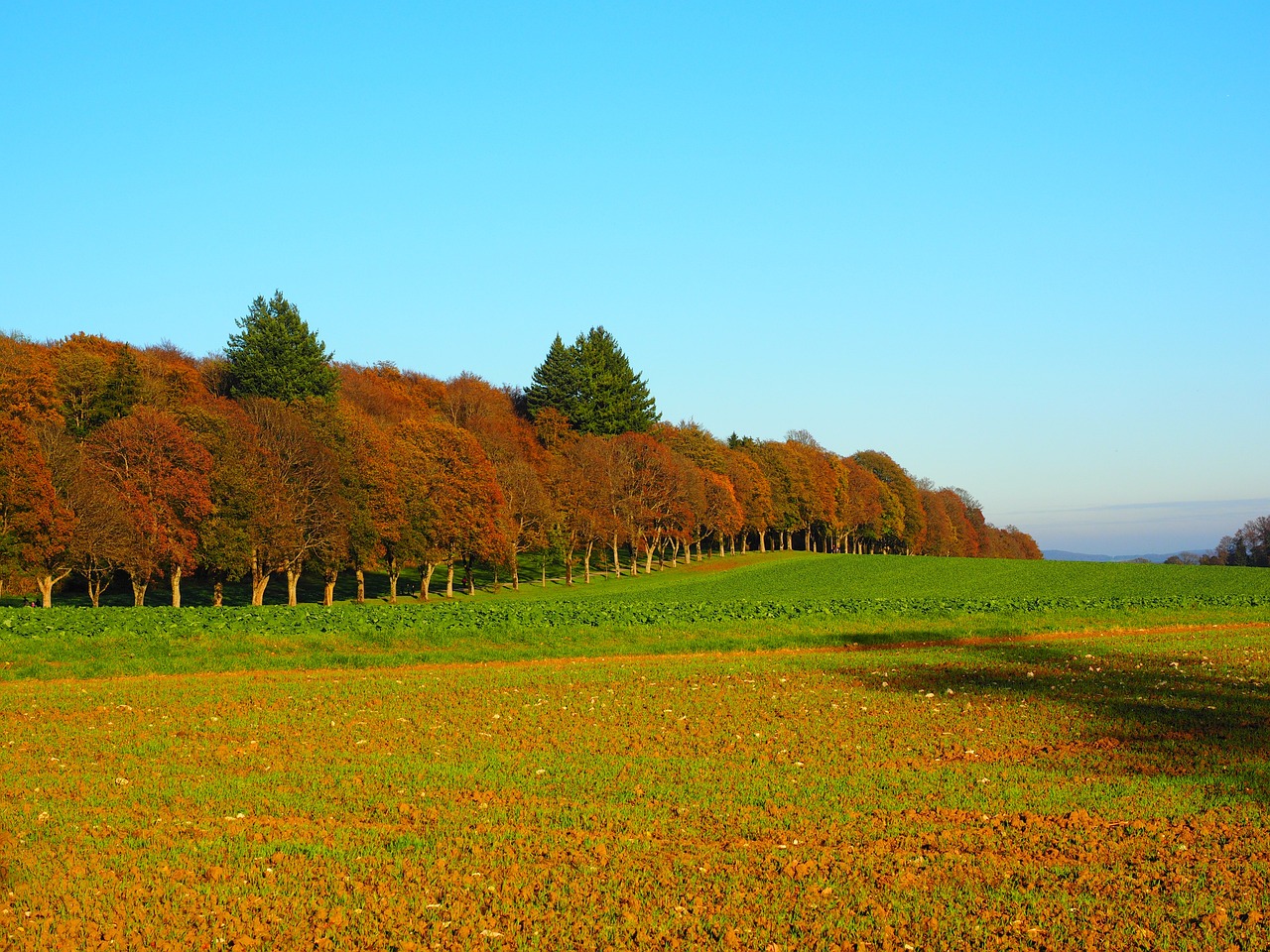
Composting Manure
Composting manure is an excellent way to enhance its benefits while also reducing the potential for pathogens that can harm your plants. When you compost manure, you're not just recycling waste; you're creating a nutrient-rich amendment that can work wonders in your garden. Think of composting as a transformative process, where raw materials are broken down into a rich, dark humus that is packed with nutrients and beneficial microorganisms. This process can take anywhere from a few weeks to several months, depending on various factors such as temperature, moisture, and the materials used.
One of the key advantages of composting manure is that it helps to stabilize the nutrients present in the raw manure. Fresh manure can be too strong for plants, potentially causing nutrient burn. However, through composting, the nutrients become more balanced and easier for plants to absorb. Additionally, composting helps to reduce the volume of manure, making it easier to handle and apply in your garden.
There are two primary methods for composting manure: hot composting and cold composting. Each method has its own set of advantages and disadvantages, and the choice largely depends on your gardening goals and available resources. Hot composting involves maintaining high temperatures by regularly turning the compost pile, which accelerates the decomposition process. This method is fantastic for quickly producing compost, but it requires more effort and attention.
On the other hand, cold composting is a more laid-back approach that requires less maintenance. You simply pile up your materials and let nature take its course. This method takes longer, but it's perfect for gardeners who prefer a hands-off approach. Regardless of the method you choose, incorporating a variety of materials—such as kitchen scraps, yard waste, and carbon-rich materials like straw or leaves—will help create a balanced compost that is rich in nutrients.
Once your compost is ready, you can further enhance its utility by creating compost tea. This nutrient-rich liquid can be used as a natural fertilizer, providing an easy way to deliver nutrients directly to your plants. To make compost tea, simply steep finished compost in water for a few days, strain it, and apply it to your garden. This method allows you to maximize the benefits of your composted manure, giving your plants the boost they need to thrive.
In summary, composting manure is a sustainable practice that not only benefits your garden but also contributes to a healthier environment. By transforming waste into a valuable resource, you're participating in a cycle that promotes soil health and plant vitality. So, whether you choose hot or cold composting, you’re making a positive impact on your gardening journey!
- What materials can I compost with manure? You can compost kitchen scraps, yard waste, leaves, and other organic materials alongside manure to create a balanced compost mix.
- How long does it take to compost manure? Depending on the method used, composting manure can take anywhere from a few weeks to several months.
- Is composted manure safe for my garden? Yes, composting manure reduces pathogens and stabilizes nutrients, making it safe and beneficial for your garden when properly composted.

Hot vs. Cold Composting
When it comes to composting manure, two primary methods often come to mind: hot composting and cold composting. Each method has its own unique characteristics, benefits, and challenges that can significantly affect the quality of your compost and the overall health of your garden. So, how do you choose the right one for your needs? Let’s dive into the details!
Hot composting is an accelerated process that involves maintaining high temperatures (between 130°F and 160°F or 54°C and 71°C) to break down organic materials quickly. This method is particularly effective for manure because the heat generated helps to kill off pathogens and weed seeds, resulting in a cleaner, safer end product. To achieve these temperatures, you need to balance the carbon-to-nitrogen ratio, moisture levels, and aeration. Typically, a good mix includes:
- Green materials (high in nitrogen) like fresh manure, grass clippings, and kitchen scraps.
- Brown materials (high in carbon) such as dried leaves, straw, and cardboard.
One of the biggest advantages of hot composting is speed. Under optimal conditions, you can have finished compost in as little as 4 to 6 weeks. However, it does require more effort and monitoring to maintain those ideal conditions.
On the other hand, cold composting is a more laid-back approach. This method allows organic materials to decompose naturally over time without the need for constant temperature monitoring or turning. Cold composting is less labor-intensive, making it a great option for those who prefer a more hands-off approach. However, it does take longer—often several months to a year—before the compost is ready to use.
With cold composting, you can add materials as you collect them without worrying about the carbon-to-nitrogen ratio or moisture levels as much. This method is particularly beneficial for gardeners who want to incorporate manure into their compost but might not have the time or resources to manage a hot compost pile. Just keep in mind that while cold composting is simpler, it may not reach temperatures high enough to kill off all pathogens.
In summary, the choice between hot and cold composting largely depends on your gardening style, time commitment, and specific needs. If you’re looking for speed and efficiency, hot composting is the way to go. But if you prefer a more relaxed approach and don’t mind waiting, cold composting can still produce excellent results. Here’s a quick comparison to help you decide:
| Feature | Hot Composting | Cold Composting |
|---|---|---|
| Time to Compost | 4-6 weeks | Several months to a year |
| Temperature | 130°F - 160°F (54°C - 71°C) | Ambient temperature |
| Labor Intensity | High (requires monitoring and turning) | Low (minimal effort) |
| Pathogen Control | Effective | Less effective |
| Material Addition | Limited (needs balance) | Flexible (add as you go) |
Ultimately, both methods have their place in sustainable gardening practices. By understanding the differences between hot and cold composting, you can make an informed decision that aligns with your gardening goals and lifestyle.
1. Can I use any type of manure for composting?
Yes, you can use various types of manure, including cow, chicken, and horse manure. Just remember to balance it with carbon-rich materials for optimal composting.
2. How can I tell when my compost is ready?
Finished compost should be dark, crumbly, and have an earthy smell. If you can’t recognize the original materials, it’s likely ready to use!
3. Is it safe to use fresh manure in the garden?
Fresh manure can contain pathogens and should be composted first to kill them off. Always compost manure before applying it to your garden.
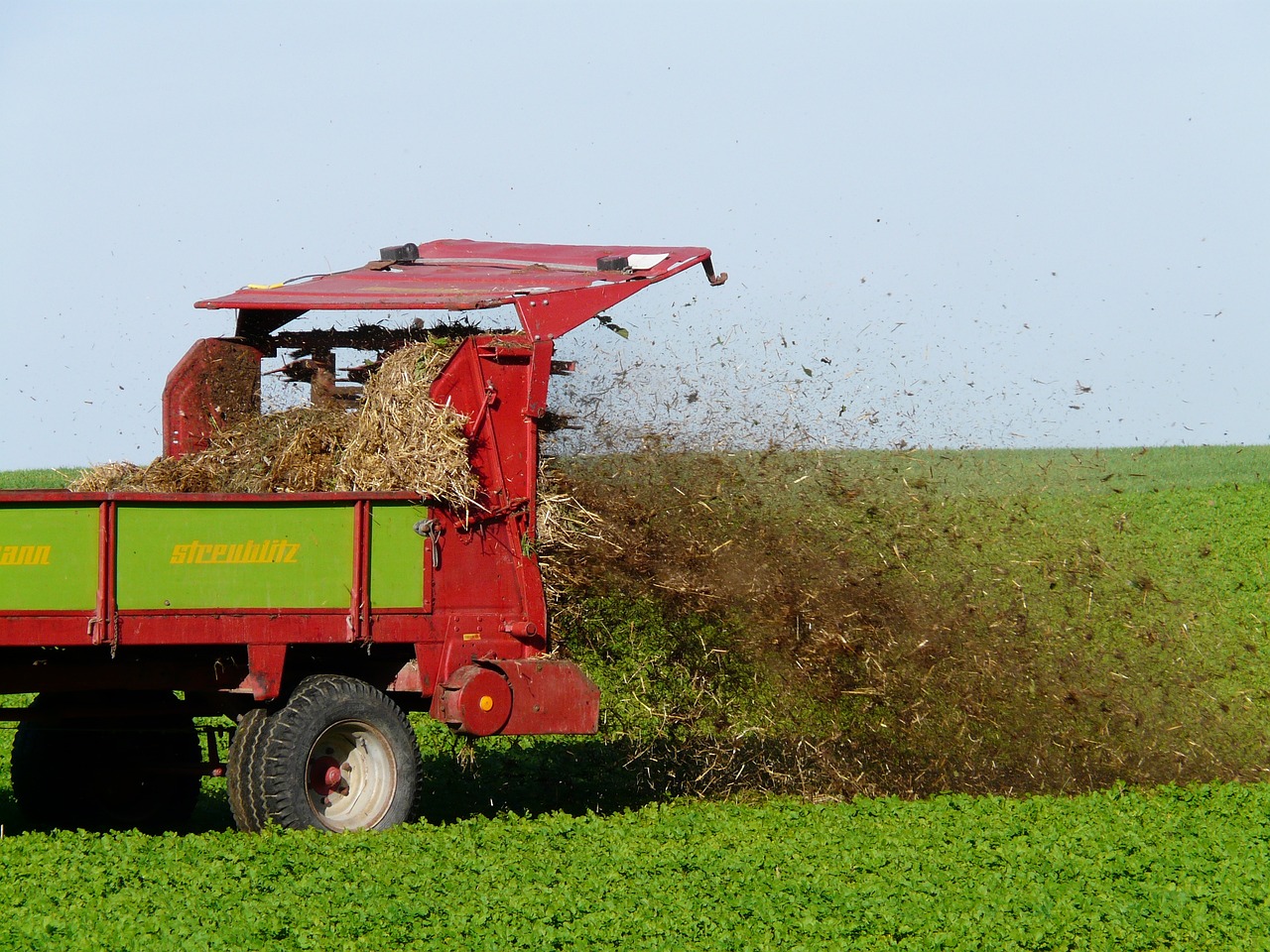
Using Compost Tea
Compost tea is like a magic potion for your garden, transforming the humble manure into a nutrient-rich liquid that can supercharge your plants. Imagine a brew that not only nourishes your soil but also helps in warding off diseases! This is what compost tea does, and it's incredibly easy to make. To create this elixir, you'll need to steep composted manure in water, allowing the beneficial microbes and nutrients to leach into the liquid. The result? A powerful, organic fertilizer that can be applied directly to your plants.
But, before you start brewing, let's break down the process a bit. First, you’ll need quality composted manure. It’s crucial to use well-composted material to minimize pathogens and weed seeds. You can use a variety of manures, such as cow, chicken, or horse, but make sure they are aged properly. Fresh manure can be too strong and may burn your plants.
Once you have your composted manure, follow these steps:
- Gather Your Materials: You will need a bucket or a large container, water (preferably rainwater), and a mesh bag or old pillowcase to hold the manure.
- Mixing: Place about one part of the composted manure into your mesh bag and submerge it in about five parts of water. Stir it occasionally to help the nutrients dissolve.
- Brewing Time: Let the mixture steep for 24 to 48 hours. The longer you let it steep, the stronger the tea will be.
- Application: Once your compost tea is ready, simply strain it and use it to water your plants. You can apply it directly to the soil or as a foliar spray for an extra boost.
Using compost tea not only nourishes your plants but also improves soil health. The beneficial microorganisms present in the tea help to break down organic matter in the soil, making nutrients more accessible to your plants. Additionally, these microbes can outcompete harmful pathogens, providing a natural defense mechanism for your garden.
It's worth noting that compost tea can be used in various ways. You can apply it during regular watering or use it as a drench when planting. Just be careful not to overdo it; a little goes a long way. Too much of a good thing can lead to nutrient burn or imbalance in the soil. As with any gardening technique, it’s all about finding the right balance.
In summary, compost tea is a fantastic, eco-friendly way to give your garden a nutrient boost. By harnessing the power of composted manure, you can create a potent fertilizer that promotes healthy growth and resilience in your plants. So, why not try brewing your own compost tea and watch your garden thrive?
- What is compost tea? Compost tea is a liquid fertilizer made by steeping composted materials in water, allowing nutrients and beneficial microbes to leach into the liquid.
- How often should I apply compost tea? You can apply compost tea every 2-4 weeks during the growing season, depending on your plants' needs.
- Can I use fresh manure to make compost tea? No, it's best to use well-composted manure to avoid burning plants and introducing pathogens.
- What are the benefits of using compost tea? Compost tea enhances soil health, provides essential nutrients, and helps suppress diseases through beneficial microbes.
Frequently Asked Questions
- What types of manure are best for my garden?
Choosing the right type of manure depends on your garden's specific needs. For instance, cow manure is rich in nutrients and great for vegetable gardens, while chicken manure is high in nitrogen, making it ideal for leafy greens. Horse manure is also beneficial, but be sure to use it well-composted to avoid weed seeds!
- How does manure improve soil health?
Manure enhances soil health by adding essential nutrients, improving soil structure, and increasing moisture retention. Think of it as a multivitamin for your soil, helping it to thrive and support healthy plant growth!
- Can I use fresh manure directly in my garden?
While fresh manure is high in nutrients, it can also contain pathogens that might harm your plants. It's usually best to compost it first. This process not only reduces harmful bacteria but also makes the nutrients more accessible to your plants.
- What is compost tea and how do I use it?
Compost tea is a liquid fertilizer made by steeping composted manure in water. It's packed with nutrients and beneficial microbes. To use it, simply water your plants with the tea, giving them a nutrient boost that promotes healthy growth!
- What are the differences between hot and cold composting?
Hot composting involves maintaining high temperatures to break down materials quickly, which can kill pathogens. Cold composting is a slower process that requires less effort but may not eliminate all harmful bacteria. Choose based on your gardening needs and time available!
- How can I prevent soil erosion with manure?
Applying manure helps bind soil particles together, which reduces erosion. Think of it as a protective blanket for your garden, keeping the soil intact and promoting healthier plant roots.
- Is it safe to use manure in a vegetable garden?
Yes, using well-composted manure in a vegetable garden is safe and beneficial. Just make sure to compost it properly to eliminate any pathogens, ensuring your veggies grow healthy and safe to eat!



















